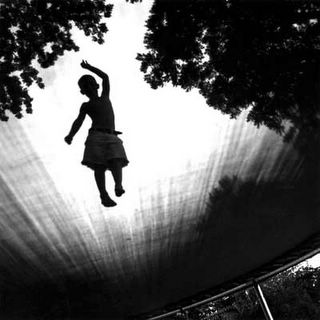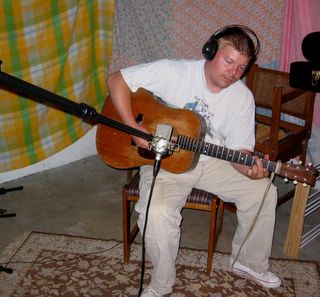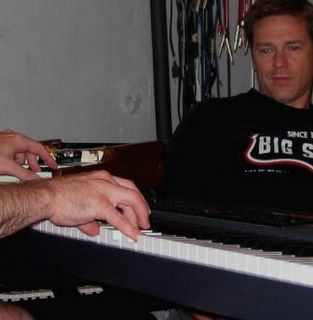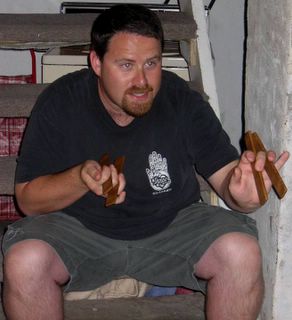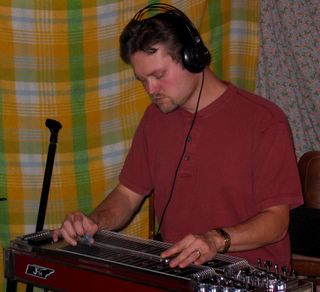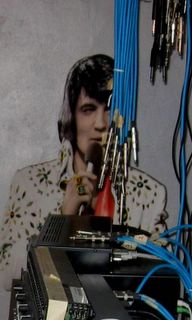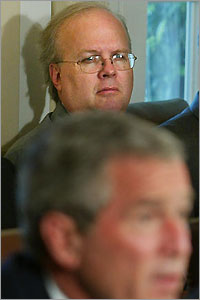Flags have been on my mind lately.
What an interesting thing, a flag. What’s it for? Vexillologists tell us that flags were originally designed for identification and signaling purposes. They were meant to communicate important information in an efficient manner. Most flags have evolved past that, to become largely ceremonial or symbolic. But, events often conspire to reinvigorate flags with new potency.
The tragedies of 9/11 prompted a renewal of the
That’s not what’s on my mind.
The U.S. House recently passed a resolution in June, supporting a Constitutional amendment that would ban flag desecration. It will likely move to a vote in the Senate any day now. Having failed to get the necessary votes the last five or six times it’s been tried, legislators apparently stand a much better chance of passing it this time around. While there are some compelling issues surrounding the issue of flag desecration, that’s not what’s on my mind.
The confederate flag has also received a great deal of attention lately. Several Southern states and numerous local institutions continue to debate the balance between heritage and offensiveness.
But, that’s not what’s on my mind.
THIS is what’s on my mind:
The
I first heard about this flag here and here.
Some of you may be familiar with the original Christian flag, designed by a Sunday school superintendent and a Methodist minister in 1907.
The original pledge to the Christian flag was,
I pledge allegiance to the Christian Flag and to the Savior for whose kingdom it stands. One brotherhood, uniting all mankind, in service and love.
Most conservative Protestant churches, feeling that the message was too broad and liberal, modified the pledge to read,
I pledge allegiance to the Christian flag, and to the Savior for whose kingdom it stands; one Savior, crucified, risen, and coming again with life and liberty to all who believe.
While more than a little disturbing in its crusade-ishness, for decades the Christian flag sat stoically next to the American flag in Protestant churches, proclaiming a strange and benign version of patriotism and faith. It received little attention beyond mumbled rituals of punch-stained preschoolers at vacation bible school.
Well, apparently, the Christian flag’s design and pledge were too anemic and inclusive for Marcia Thompson Eldreth and her pastor.
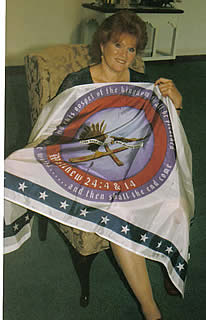
The Betsy Ross of American Fundamentalism designed the new U.S Christian flag, which carries this pledge:
I pledge allegiance, to the Christian Flag, of the United States of America, and to the Lord, who made us great and free. I purpose, to band together, with all believers, to protect the truth and liberty of God.
Holy. Shit.
Where to begin. Why a flag? Why an exclusively U.S. flag? Is the U.S. unique in its "greatness" and "freedom?" When we "band together," is that a thinly-veiled call to arms? By "all believers," does that imply only American believers? Since when did God's truth or liberty need your protection? And that's just for starters.
I know this represents a perverted extreme of the American Christian Right, and I know that many of my conservative friends will recoil at this too; but where is this God-is-on-our-side stuff going to end? Star-spangled bibles? Pistol-packing missionaries? Seeing the cross by the rockets red glare?
Whenever we fly something, wave something, or display something designed to signal our cultural location, our religious identity, or our ideology; and whenever the flying, waving, and displaying become more important than the living and the loving, we have completely missed the point.
My neighbor, Bill, regularly displays an American flag on his house. While Bill and I do not agree about most things political, and I am not much for flag-waving, his flag is not offensive to me at all. Bill is a good guy whose son is in the military, and who is simply proud of his country. He doesn’t fly his flag to say something about me, or to draw some line of division between us, and he would never let his flag come between our relationship as neighbors.
The U.S. Christian flag bothers me a lot. My God and my faith are not things to be possessed by an exclusive group or nation, or weapons to be wielded in a nationalistic culture war.
Jesus said that his followers will be known for their love, joy, peace, kindness, etc. He didn’t say, “They will know you by your flags.” Someone needs to remind Marcia that Jesus taught that we win by losing.
So, does God hate flags? I don’t know. I honestly don’t think God gives a damn about our flags. But I feel sure that God hates it when we spend more time and attention on banners, edifices, proclamations, and policies than we do loving God and loving our neighbors.



